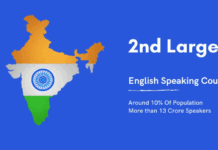Nowadays, the phrase vegan has become really popular. More individuals have chosen a vegan diet for moral, environmental, and health reasons increasingly. If anyone takes a proper vegan diet, he may feel many health benefits like losing extra body weight and better blood sugar control. But still many people think as a vegan diet is only based on plant foods, it may increase the possibility of vitamin and nutrient deficiencies.
But if you are just a beginner, this article may help you a lot as it aims to cover everything you need to know while going vegan and follow a proper diet in the best possible manner.
Why do people go vegan?
Vegans choose to avoid animal products for different reasons like ethical, health, or environmental reasons.
Ethics:
Ethical vegans firmly accept as true that every creature may live and liberty. They, therefore, oppose simply ending the life of a conscious creature to consume its flesh, drink its milk, or wear its skin, especially as alternatives are presented.
Because of recent farming practices, ethical vegans are also opposed to the psychological and physical stress that animals may undergo.
Numerous vegans exclaim against the activities of the farming industry, like the egg industry’s grinding of living male chicks or the markets force-feeding of ducks and geese.
By demonstrating, raising awareness, and picking products that do not involve animal agriculture, ethical vegans can validate their opposition.
Health:
Some people go vegan because of its health benefits. Vegan diets reduce the risk of cancer, heart disease, diabetes, and premature death. It also reduces the risk of Alzheimer’s disease.
Some people like to avoid animal products because of modern farming culture and the side effects of hormones and antibiotics. People who like to go with a vegan diet also get help to lower their body weight and improve their BMI.
Environment:
Because of the environmental impact of animal agriculture, people may also choose to avoid animal products and go vegan.
For example, animal agriculture accounts for 65% of global nitrous oxide emissions, 35-40% of methane emissions, and 9% of carbon dioxide emissions. The three major greenhouse gasses involved in climate change are being these chemicals.
In addition, animal agriculture has a tendency to be a process that is water-intensive. For instance, 550-5200 gallons of water is needed to produce 1 pound of beef whereas to produce the same amount of cereal grains water needed is 40 times lesser than beef production.

Types of veganism
There are five main types of veganism explained in this article.
- Dietary vegans: This concept applies to those who avoid animal products in their diets but select to use them in other products, for example, clothing and cosmetics, often used with “plant-based eaters.”
- Whole food vegans: these people like a diet that is rich in whole foods, containing fruits, vegetables, whole grains, pulses, nuts, and seeds.
- Junk-food vegans: Some people count on processed vegan food, like vegan meats, fries, frozen dinners, and desserts, with Oreo cookies and non-dairy ice cream.
- Raw-food vegans: this group only consumes vegan diets cooked at below 118 degrees Fahrenheit.
- Low-fat, raw food vegans: This subgroup, also recognized as fruitarians, limits high-fat foods, such as nuts, avocados, and coconuts, relying primarily on fruit as an alternative. They occasionally eat other plants in small amounts.

Vegan sources of vitamins and minerals
Vegan sources of Calcium and vitamin D
Calcium is essential to maintain healthy bones and teeth. But vegan avoids dairy foods, the main source of calcium and vitamin D. vegans can get calcium from Fortified unsweetened Soya drinks, leafy vegetables like broccoli and cabbage, plant milk and juices fortified with calcium, calcium-set tofu, sesame seeds, tahini, brown bread, pulses, dried raisins, apricots, and figs. Dried fruits should be taken at mealtimes to reduce the effect of sugar on teeth.
The body requires vitamin D to control the amount of calcium and phosphate in body. These nutrients help keep bones, teeth, and muscles healthy.
Sources of Vitamin D for vegans
Vitamin D is a fat-soluble vitamin that helps improve the absorption of calcium and phosphorus from your gut. This vitamin also affects many other physical processes, including immune function, mood, memory, and muscle recovery. Excellent sources of Vitamin D are Exposure to sunlight from late March/ early April, Fortified fat spreads, Vitamin D fortified plant milk & breakfast cereals, and Vit-D added unsweetened soya drinks. Except these vegans can intake vitamin D supplements to avoid vitamin D deficiency.

Sources of Iron
For the production of red blood cells, iron is very important. A vegan diet can be full of iron, but iron in plant-based food is less absorbed by the human body than iron from animal products. Vegan can get iron from pulses, leafy vegetables, wholemeal bread, nuts, prunes, figs, and apricots.

Sources of Vitamin B12
For a good nervous system and blood, the human body needs vitamin B12. Sources of B12 for vegans are limited, so it’s better to take a B12 supplement. Sources of B12 for vegans are breakfast cereals fortified with B12, unsweetened soya drinks reinvigorated with vitamin B12, yeast extract, such as Marmite, which is fortified with vitamin B12.

Sources of omega-3 fatty acids
Omega-3 fatty acids found in oily fish to keep your heart in excellent condition and lessen the risk of heart disease. For vegans, the sources of omega-3 fatty acids are tofu, walnuts, hemp seeds, soya products, linseed oil, and walnuts. If you are vegan, you need to eat less food that is high in saturated fat.

Sources of magnesium
Vegans can easily get minerals if they follow a proper diet. Brown rice, cooked oatmeal, broccoli, bananas, peanuts, cooked spinach are wonderful sources of magnesium.
Sources of phosphorus
Cereal grains, lentils, avocados, dried beans, yeast, and leafy green vegetables can give you the necessary minerals for your body if you follow a vegan diet.
Sources of Iodine for vegan
Iodine plays a significant part in your thyroid function and metabolism. Vegans not having enough iodine from seaweed or iodized salt should consider taking an iodine supplement. Iodine-rich sea vegetables, kelp, vegetables are grown in iodine-rich soil are a good source of iodine for vegans.

Sources of potassium and zinc
If you are about to go vegan and worried about having proper nutrients from vegan meals, you can have a look at this list. Zinc is an essential mineral for improved metabolism, immune system, and repair of body cells. Inadequate consumption of zinc can lead to developmental disorders, hair loss, diarrhea, and late wound healing. The sources of potassium and zinc for vegans are pumpkin seeds, legumes, sunflower seeds, honeydew melon, asparagus, crimini mushrooms, Brazil nuts, soybean, bananas, cantaloupe, baked sweet potatoes, winter squash, strawberries, grapefruit, barley, chia seeds, and flax seeds.

Sources of Vitamin A
Vitamin A in plant foods comes mainly as β-carotene. The RDA for vitamin A is 700 RAE for women and 900 RAE for men, and it’s very necessary for vegans to follow the RDA. Eating foods with a source of fat can help in the absorption of vitamin A. Carrots, sweet potatoes, acorn and butternut, mango, apricot, pumpkin turnip greens, red bell pepper, and other green veggies are the main source of vitamin A for vegans.

Sources of Vitamin C
Romaine Lettuce, collard greens, Brussels sprouts, melon, papayas, berries, tomatoes, bell peppers, oranges, grapefruit, walnuts, and others.
Sources for Vitamin E
Sunflower oils, raw wheat germ, whole wheat flour, sunflower seeds, whole grains.
Sources for Vitamin K
Parsley, broccoli, cauliflower, Brussels sprouts, green tea, turnip greens, kale, tomatoes.
Health Benefits of Eating Vegan
Vegan diets not only help people lose weight, but it has an array of other health benefits like reducing the chance of heart disease, type 2 diabetes, and certain cancers.
Full of nutrients: if you are about to switch to vegan, you need to rely on plant-based foods in form of whole grains, fruits, beans, nuts, seeds, colorful vegetables. Several studies have shown that vegan diets aim to deliver more fiber, antioxidants, and beneficial plant compounds. They also are likely to be richer in potassium, magnesium, folate, and vitamins A, C, and E. so always make your meal plan that is full of nutrient-rich foods.
Loss of extra weight: A growing number of individuals are turning to plant-based diets, hoping to shed additional body weight. Most of the studies show vegans have a tendency to stay slim and have lower BMIs. Vegan diets have a natural trend to cut calorie consumption. This makes them effective at boosting weight loss without the need to reducing calories.

Lower blood sugar level and improve kidney function: Indeed, vegans seem to have lower blood sugar levels, improved insulin sensitivity, and up to a 50–78 percent lower risk of developing type 2 diabetes. In one study, 43 percent of participants following a vegan diet could minimize their dosage of blood-sugar-lowering medication, compared to just 26 percent in the community that followed an ADA-recommended diet. In addition, several studies put forward that a vegan diet might offer complete relief of systemic distal polyneuropathy symptoms — a condition in diabetics that causes sharp, fiery pain.
Protection against certain cancers: eating legumes regularly can decrease your risk of colorectal cancer by about 9–18 percent. Vegans typically consume much more legumes, berries, and vegetables than non-vegans. This may explain why the latest study of 96 studies found vegans may benefit from a 15 percent lower risk of developing or dying from cancer. Vegan diets contain soy products that reduce the chance of breast cancer, prostate and colon cancers.
Lower risk of heart diseases: fresh fruits, vegetables, and legume lower the risk of getting heart diseases. Some randomized studies report vegan diets are far more effective at lowering blood sugar, LDL cholesterol, and total cholesterol levels than non-vegan diets. Vegan diets may help heart health by considerably reducing the risk factors that add to heart disease.
Reduce the pain of arthritis: a vegan diet has beneficial effects in people with various forms of arthritis. One research randomly allocated 40 arthritic participants to either continue consuming their omnivorous diet or turn to a whole-food, plant-based vegan diet for 6 weeks. Those on the vegan diet showed higher energy levels and better general functioning than those who didn’t change their diet.
Two other research discovered the effects of a probiotic-rich, raw food vegan diet on symptoms of rheumatoid arthritis. Both showed that participants in the vegan community experienced better progress in symptoms such as discomfort, joint swelling, and morning stiffness than those who maintained their omnivorous diet.












































